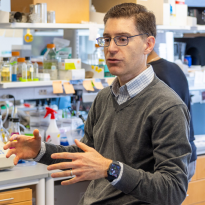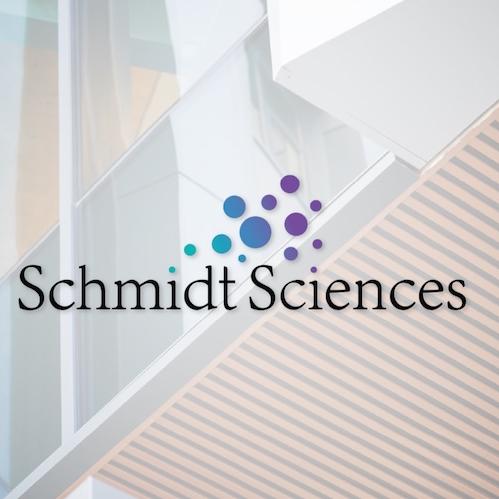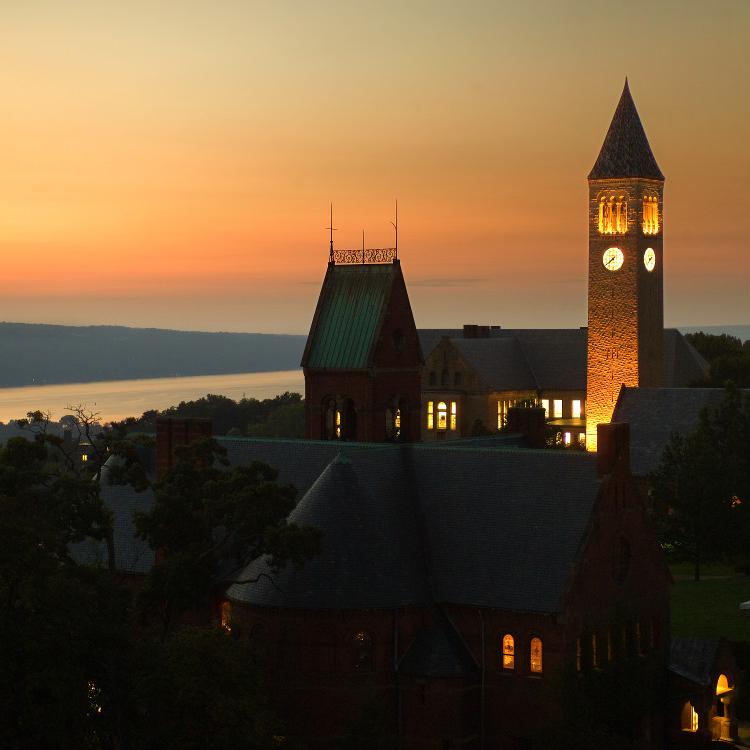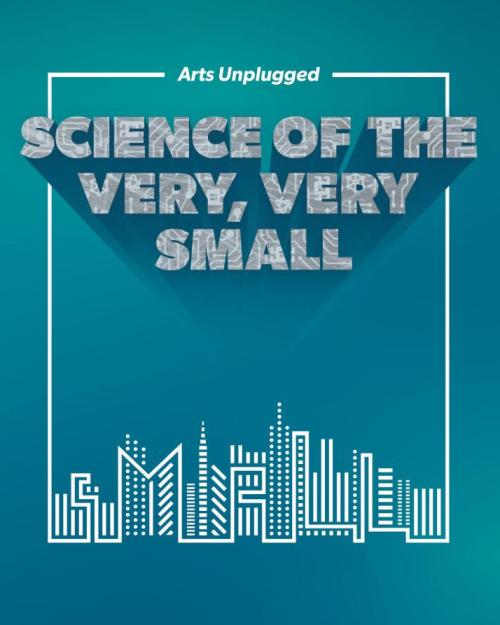From cell-sized robots to quantum computers to the manipulation of human genes, the Arts Unplugged: Science of the Very, Very Small event on March 9 will explore the nanoscale and quantum innovations shaping our future.
Presented by the College of Arts and Sciences, the virtual event will include short talks by and conversations with some of Cornell’s top scientists and humanists, including Nobel Prize-winner Roald Hoffmann. The event is free and the public is invited to register.
The virtual event, from 4:30 to 6:30 p.m., will also be streamed live for the Cornell community in the Groos Family Atrium in Klarman Hall and the Clark Hall Atrium in the Physical Sciences Building. At these locations, live demonstrations of macro-scale origami nanorobot design will take place during intermission, with free origami paper available for the audience. For those participating online, an origami template that can be printed at home is available.
“So much of our future is being shaped by innovations at a scale invisible to the human eye. This event will bring those exciting discoveries into view,” said Ray Jayawardhana, the Harold Tanner Dean of Arts and Sciences.
“Science of the Very, Very Small” will bring together scientists and humanists from numerous fields, including physics, chemistry, biology, literature and moral psychology, ranging from early-career innovators to senior researchers. Zubrow Distinguished Visiting Journalist and award-winning science writer Natalie Wolchover will serve as moderator.
The goal of the Arts Unplugged series is to bring research and creative works into the public sphere for discussion and inspiration; as part of this outreach, A&S is offering two additional ways to engage with the science of the very, very small.
The college has launched an “Envisioning the Future” contest, inviting submissions of either a written description (200-word limit) or a visual representation of how participants think nanoscience will change our world. There are three age categories – elementary, middle/high school and adult – and winning entries will be published online, showcased during the March 9 event, and receive a gift certificate to a local business. More information and the submission form are online.
In addition, an exhibit of science at the nanoscale will be held in the Rockefeller Terrace side of the Physical Sciences Building. Virtual versions of the posters will also be posted on the Arts Unplugged website.
The event schedule follows; each topic will include a live Q&A between the moderator and the presenters:
- Walking nanorobots with brains – Itai Cohen, professor of physics
- Manipulating genes with nanotech – Ailong Ke, professor of molecular biology and genetics, and Julia Markovits, associate professor of philosophy
- Discovering the particles that define us – Liam McAllister, professor of physics, and Peter Wittich, professor of physics and director of the Laboratory of Elementary Particle Physics
- Intermission: Creating origami robots demonstration – Michael Reynolds, M.S. ’17, Ph.D. ’21, postdoctoral associate, Smith School of Chemical and Biomolecular Engineering, College of Engineering; announcement of “Envisioning the Future” contest winners
- The interplay of science and fiction – Roald Hoffmann, Nobel Laureate in Chemistry and Frank H. T. Rhodes Professor, Emeritus; Liliana Colanzi, M.A. ’14, Ph.D. ’17, assistant professor of Romance Studies; and Lyrae Van Clief-Stefanon, associate professor of literatures in English
- Designing worlds at the nanoscale – Eun-Ah Kim, professor of physics; Brad Ramshaw, The Dick and Dale Reis Johnson Assistant Professor of physics; and John Marohn, professor of chemistry and chemical biology
- Audience Q&A





